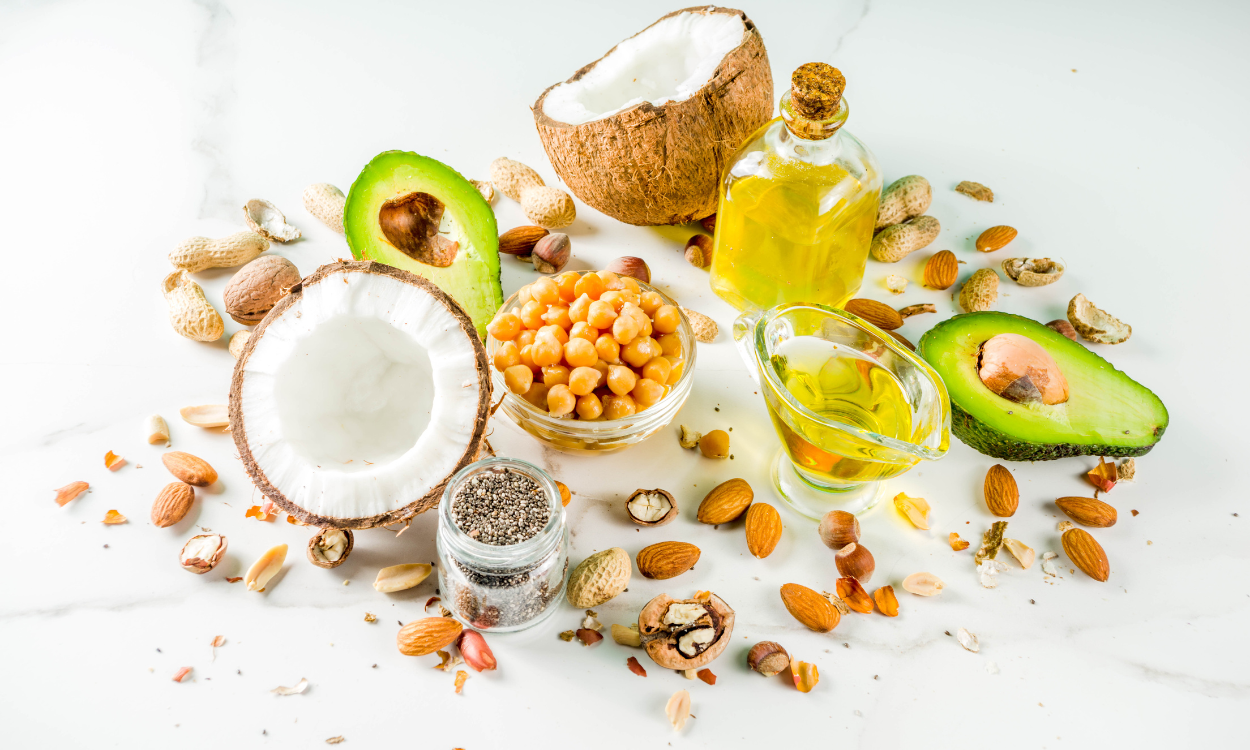Single cell protein production from bacteria is a promising field that has gained attention in recent years due to its potential to address global food security and sustainability challenges. Bacteria are known for their ability to rapidly multiply and adapt to various environments, making them ideal candidates for producing high-quality proteins. By manipulating the growth conditions and genetic makeup of these microorganisms, scientists can optimize protein production and create a renewable and eco-friendly source of nutrition. Single cell protein derived from bacteria has shown great promise as a versatile ingredient with applications in alternative protein sources, animal feed, and even human consumption. This introductory paragraph will provide an overview of the concept and significance of SCP from bacteria.

What are the potential risks associated with consuming single cell protein produced from bacteria?
Consuming single cell protein produced from bacteria may pose various potential risks. One concern is the potential for contamination with harmful bacteria or toxins during production, which could lead to foodborne illnesses. Another risk relates to the possibility of allergic reactions or adverse effects in individuals sensitive to components of the bacterial protein. Additionally, there may be concerns regarding the safety of the genetic modifications made to the bacteria to enhance protein production, as well as the potential for unintended consequences on human health. Furthermore, the long-term effects of regularly consuming single cell protein from bacteria are not yet fully understood, and further research is needed to assess any potential health risks associated with its consumption.

How can the quality and safety of single cell protein produced from bacteria be ensured?
The quality and safety of single cell protein (SCP) produced from bacteria can be ensured through various measures. Firstly, strict adherence to Good Manufacturing Practices (GMP) should be followed throughout the production process, including proper hygiene and sanitation protocols. Additionally, regular monitoring and testing should be conducted to ensure the absence of harmful contaminants and toxins in the final product. This can involve microbial testing, pesticide residue analysis, and heavy metal screening. Furthermore, the selection of bacterial strains for SCP production should be carefully evaluated for their safety profile, with considerations for potential allergenicity or pathogenicity. Overall, a comprehensive quality control system, including traceability and documentation, should be implemented to ensure the highest standards of quality and safety for SCP derived from bacteria.
What are the environmental impacts of large-scale single cell protein production from bacteria?
Large-scale Single cell protein production from bacteria can have both positive and negative environmental impacts. On the positive side, this method requires fewer resources such as land, water, and feed compared to traditional livestock farming, reducing pressure on natural ecosystems and conserving valuable resources. It also emits less greenhouse gases and reduces the risk of zoonotic diseases. However, there are potential negative impacts as well. The large-scale cultivation of bacteria may require energy-intensive processes for fermentation and downstream processing, which could contribute to carbon emissions if not sourced from renewable sources. Additionally, the disposal of waste products and wastewater from production facilities needs to be carefully managed to prevent pollution of soil and water bodies. Overall, while single cell protein production can offer sustainable solutions to food security, careful consideration and mitigation strategies should be in place to minimize its environmental footprint.
Are there any ethical concerns related to using bacteria for single cell protein production?
There are potential ethical concerns related to using bacteria for single cell protein production. One concern relates to the safety and potential health risks associated with consuming genetically modified bacteria. There may be uncertainties regarding the long-term effects of consuming these proteins on human health, as well as the possibility of unintended consequences such as antibiotic resistance development. Another concern involves the impact on biodiversity and ecosystems if genetically modified bacteria were to escape into the environment and potentially cause ecological disruptions. Additionally, there might be ethical considerations surrounding the use of resources, such as water and energy, required for large-scale bacterial protein production, particularly in regions where these resources are scarce or needed for other essential purposes. Overall, careful consideration of these ethical concerns is necessary to ensure the responsible and sustainable use of bacteria for single cell protein production.
Are there any regulations or guidelines in place regarding the production and use of single cell protein from bacteria?

Yes, there are regulations and guidelines in place regarding the production and use of single cell protein (SCP) from bacteria. These regulations vary across countries and jurisdictions, but generally focus on ensuring the safety and quality of SCP for human or animal consumption. They cover aspects such as the selection and cultivation of bacterial strains, manufacturing processes, product labeling, and potential health risks associated with SCP consumption. Additionally, guidelines may address environmental considerations related to the production and disposal of bacteria used in SCP production. These regulations and guidelines aim to protect public health, maintain food safety standards, and promote sustainable practices in SCP production.

Can single cell protein from bacteria be used as a substitute for traditional protein sources in various food products?
Yes, single cell protein from bacteria can be used as a substitute for traditional protein sources in various food products. Single cell protein refers to a type of protein that is derived from microorganisms such as bacteria, fungi, or yeast. These microorganisms are grown in large-scale fermentation processes and can produce high-quality protein. This protein can be used as an ingredient in the production of food products such as meat analogs, dietary supplements, bakery products, and animal feed. Single cell protein offers several advantages over traditional protein sources, including high nutritional value, sustainability, and the ability to be produced efficiently on a large scale. Additionally, it can be tailored to meet specific dietary requirements and has a lower environmental impact compared to conventional animal-based proteins. Therefore, incorporating single cell protein into food products provides a viable alternative to traditional protein sources.
What are the limitations or challenges in scaling up SCP from bacteria?
There are several limitations and challenges in scaling up SCP from bacteria. Firstly, optimizing the growth conditions and media composition for large-scale production can be difficult as it requires maintaining the same nutrient concentration and environmental factors across a larger volume. Secondly, the production yield of single cell protein may vary depending on the bacterial strain used, making it necessary to identify and select the most efficient strains for industrial-scale production. Thirdly, downstream processing and purification techniques need to be developed and optimized to efficiently separate and concentrate the desired single cell protein from other cellular components. Additionally, ensuring the scalability and cost-effectiveness of the production process is crucial, including factors such as energy consumption, raw material availability, and market demand. Lastly, regulatory and safety concerns related to the use of genetically modified organisms for large-scale production need to be addressed to ensure consumer acceptance and compliance with regulations. Overall, these challenges highlight the need for continuous research and development efforts to overcome the limitations and successfully scale up SCP from bacteria.

How does the nutritional profile of single cell protein from bacteria compare to other protein sources?

The nutritional profile of single cell protein (SCP) from bacteria is comparable to other protein sources in terms of essential amino acid composition, but may vary in terms of additional nutrients. SCP is a rich source of high-quality protein and contains all the essential amino acids required by humans. It generally has low levels of fat and carbohydrates, making it a suitable option for individuals looking for a lean protein source. However, SCP may differ in terms of vitamins, minerals, and bioactive compounds compared to traditional protein sources like meat or plant-based proteins. Therefore, while SCP can provide a reliable source of protein, it should be complemented with a varied diet to ensure a well-rounded nutrient intake.
Revolutionizing Food Production: The Future of Single Cell Protein from Bacteria
In conclusion, SCP from bacteria offers a promising solution to address the global food security and sustainability challenges we face today. This innovative technology utilizes bacteria as efficient and versatile microorganisms to convert various organic substrates into high-quality protein. With advancements in genetic engineering and fermentation techniques, it is now possible to tailor the production process to meet specific nutritional requirements. Additionally, SCP from bacteria has a significantly lower environmental footprint compared to traditional agriculture, making it a more sustainable option. While there are still challenges to overcome, such as scaling up production and ensuring regulatory safety, the potential benefits of this technology cannot be ignored. By harnessing the power of bacteria, we can progress towards a future where protein production is efficient, sustainable, and accessible for all.
